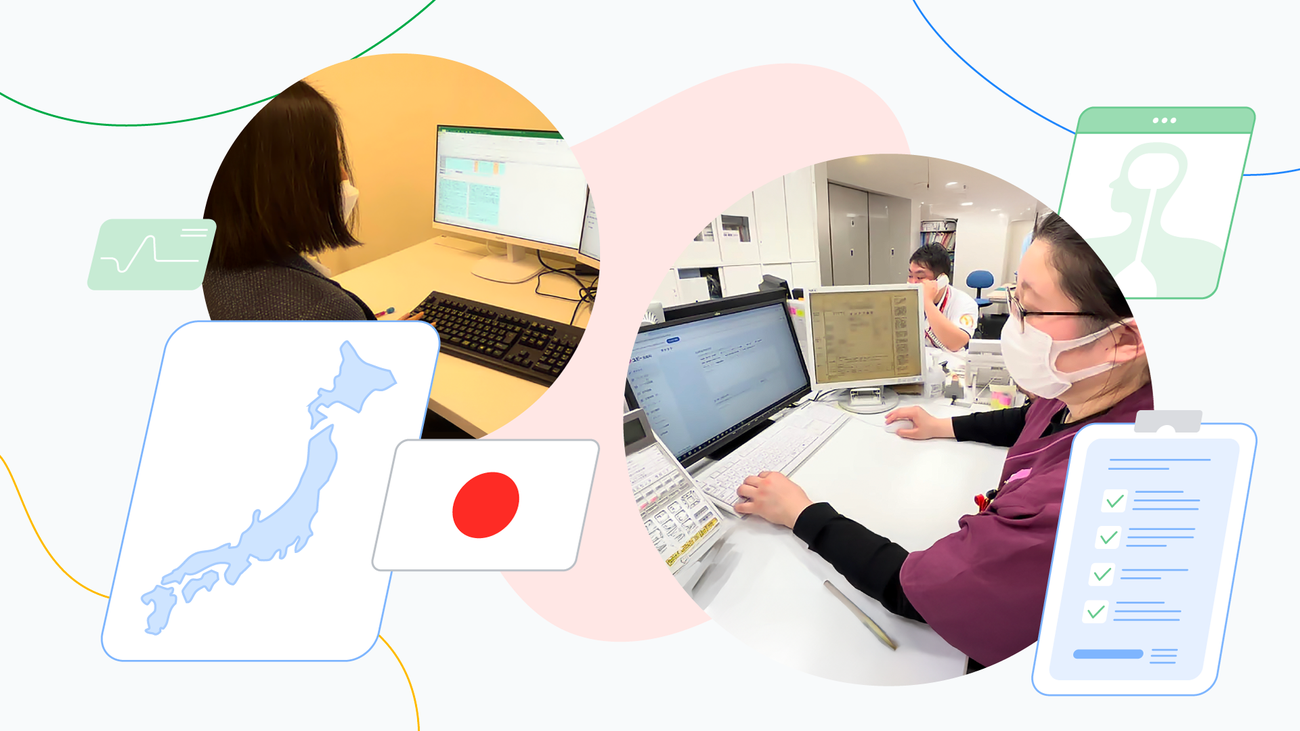Enhancing Healthcare in Japanese Hospitals with Google’s Gemini

Transforming Healthcare with AI: A Glimpse into Ubie’s Innovations
Introduction to Ubie’s Mission
Before I became part of Ubie, a health technology startup in Japan focusing on AI-driven solutions, I worked as a neurologist. The demands of my clinical responsibilities, combined with the frustration of extensive paperwork, often left me feeling overwhelmed. The tedious tasks associated with administrative duties made it difficult to dedicate the necessary time and attention to my patients. This struggle drew me to Ubie, where our primary objective is to enhance the healthcare experience for professionals and patients alike.
A Focus on Efficiency in Healthcare
At Ubie, our mission revolves around helping healthcare providers concentrate on what they do best: delivering exceptional patient care. By streamlining administrative processes, such as inputting medical records and creating referrals, we enable doctors and nurses to spend more quality time with their patients.
Leveraging Advanced AI Technology
Currently, we are developing innovative products utilizing Google’s Gemini models, which are tailored for real-world applications through Google Cloud’s Vertex AI platform. Collaborating closely with Google allows us to adapt these advanced AI models to suit the specifics of the Japanese healthcare system. The incorporation of voice recognition and summarization technology aids medical staff in efficiently generating discharge summaries, referral letters, and informed consent documents, among other administrative tasks.
Real-World Impact of Ubie’s AI Solutions
Our AI tools are making significant strides across medium- to large-sized hospitals, particularly in rural areas of Japan. Here are some notable impacts observed:
Keiju General Hospital: By utilizing our AI-powered tools for discharge summaries, nurses have been able to reduce the time spent on these tasks by 42.5%. Additionally, this innovation has contributed to a 27.2% decrease in their psychological stress. The most remarkable benefits were observed in cases of longer hospital stays, where the cognitive load on nurses is typically higher.
Yokokura Hospital: Located in Kyushu, this medium-sized facility utilized our voice transcription and summarization features, achieving a 33% improvement in the efficiency of documenting patient updates.
- Kyushu University Hospital: Known as one of Japan’s largest hospitals, a trial involving summarizing and standardizing referral letters resulted in a 54% increase in the efficiency of doctors preparing admission summaries.
These advancements ultimately enable healthcare providers to devote more time to patient interactions, thereby enhancing the overall quality of care.
Addressing Challenges in Japanese Healthcare
Improving efficiency in healthcare is especially critical in Japan, where an aging population and a declining workforce present significant challenges. There is also a shortage of administrative staff, particularly in rural regions, which adds to the operational pressures faced by hospitals. The integration of AI technology offers a promising solution to alleviate some of this burden, allowing healthcare professionals to work more effectively and provide better care for their patients.
The Future of Healthcare with AI
As we continue to innovate, the applications of AI in healthcare can transform the way we approach patient care and administrative tasks. The objective remains clear: to reduce the strain on healthcare providers while simultaneously improving the patient experience. With ongoing advancements in AI technology, we aim to create a system that not only enhances operational efficiency but also prioritizes patient well-being at its core.




